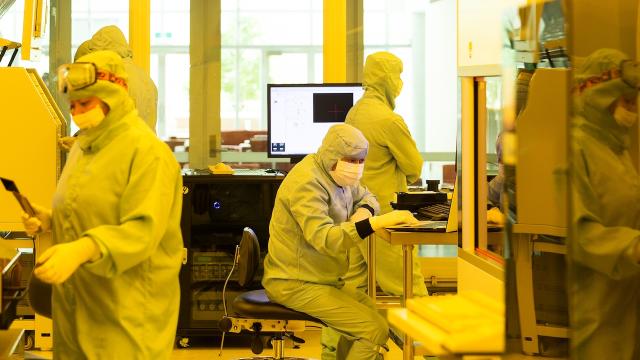Good morning, it’s President’s Day in the U.S., leaving us a little dry on the news from the big end of tech town. Not to worry, we’ve got some bangin’ Aussie news to share with you.
1. USyd makes $7.4M bet on quantum
The University of Sydney announced a $7.4 million investment to expand its quantum technology facilities to establish the Future Qubit Foundry at the Sydney Nanoscience Hub. “The Future Qubit Foundry will leverage the University of Sydney’s research leadership in advanced quantum technologies and put us at the forefront of next-generation design of qubits, the heart of quantum computers,” Deputy Vice-Chancellor (Research) Professor Emma Johnston said. “Crucially, it will also help ensure Australia can train the quantum workforce needed to operate tomorrow’s quantum tech.”
2. Responsible AI to tackle pandemics, drought and emissions
Still on research, and three Australian-U.S. scientific teams will set their sights on minimising the impact of health pandemics, harmful environmental emissions and drought using artificial intelligence approaches. The three teams walk away with grants totalling $US1.8 million from the United States National Science Foundation (NSF) and $2.3 million from CSIRO. On the research agends is climate change, clean energy and sustainability, building low emissions technologies and developing ethical AI. It’s a shakeup in AI news from what we’ve been hearing of late.
We’ve partnered with the US @NSF to turbo charge international collaboration and joint research.
The partnership has already created a number of opportunities across Australia and the US in the last year.
Find out more: https://t.co/19dV2dvgEr@NSFDrPanch | @DrLarryMarshall pic.twitter.com/YZBHYk79d3
— CSIRO (@CSIRO) February 20, 2023
3. ASIC to go harder on cyber-attack non-disclosure
On Friday, collapsed software company GetSwift was ordered to pay a $15 million fine and its directors slapped with long bans, in a Federal Court decision describing the failed company as the “unacceptable face of startup capitalism”. Following this announcement, the AFR is reporting ASIC deputy chair Sarah Court signalled the regulator will pursue even higher fines for breaches of market disclosure amid new findings that listed companies are acting illegally by failing to disclose material cyber-attacks. High profile listed companies that have been hit with cyber-attacks over the past decade include ANZ, CBA, Telstra and Wesfarmers.
4. Uptake of electric mobility vehicles, despite them being (mostly) illegal
Staying with reporting from the AFR and, apparently, Australians have bought about 350,000 tiny electric mobility vehicles in the past few years, with e-bikes booming. Zipidi Micromobility told the publication that while the industry doesn’t keep statistics, its research suggests up to 100,000 devices were sold in Australia in 2022, with demand outstripping supply. This uptake is advancing a lot quicker than legislation, and in most of Australia, it’s still illegal to ride non-pedal-assisted electric mobility devices in public areas.
Better batteries and processing power underscore the rapid growth in the micromobility sector. This feature appears as part of the Machine special of our upcoming March issue. https://t.co/Z8I7tWeZiw
— Financial Review (@FinancialReview) February 20, 2023
5. A new Teams is upon us
Good news for those of you forced to use Teams at work and according to The Verge, Microsoft is preparing to launch a new version of Microsoft Teams next month that has been rebuilt from the ground up to significantly improve its system resource usage on PCs and laptops. Per the report, the company has plans to roll out a preview to Microsoft Teams users in March. Known as Microsoft Teams 2.0 or 2.1 internally, Microsoft has apparently been working on this new Teams client for years. The app should use 50 per cent less memory, tax the CPU less, and result in better battery life on laptops.
BONUS ITEM: All we can say is ‘yikes’.
Have a great day.
